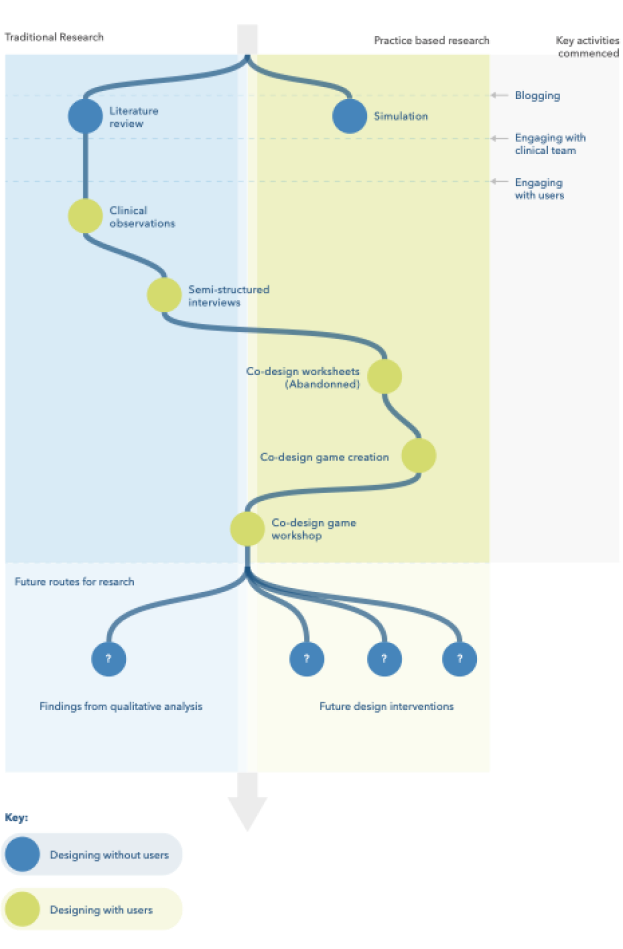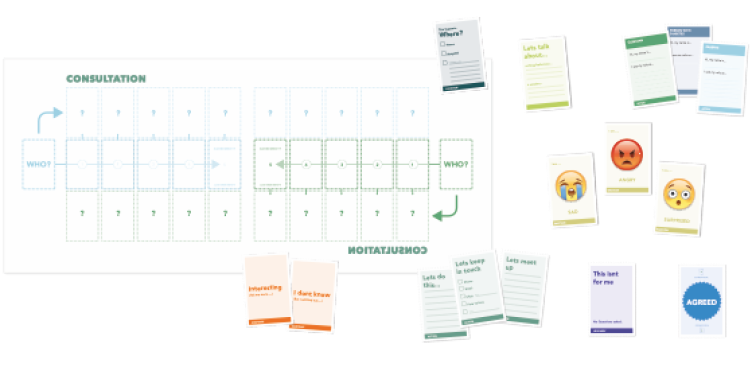LetsTalk is a tool that improves the relationship between young adults with Type 1 diabetes and their clinical care team by helping both parties have better conversations about their life and management of their long term condition. Focused on transitional care (the change in care delivery between peadiatric and adult care), Let's Talk aims to avoid negative health outcomes associated when young adults disconnect from the health system.
People with T1D often only have their condition predominantly framed through a series of numerical measures used to describe blood-glucose levels. LetsTalk aimed to push the clinical conversation towards the lived experience of the disease and re-focus clinical encounters on person-specific ways to improve management, especially during a challenging period in a young person’s life.
Let'sTalk records the lived experiense of someone managing T1D, using tools and communication mechanisms (emoji's) to diarise key (and often challenging) moments in their life. This would then be used as the basis for the next meeting between the care team and the patient. A move away from 'traditional' data points that drove these encounters, such as blood glucose levels. Clinic sessiona could now focus on disease managament in a much broader context, specific to that patients life situation.
Research Through Design
Let'sTalk was one of many possible concepts developed as a result of a broad and innovative design research process. The phases of which included a broad literative review, simultion of T1D management, and direct observation of clinical practice within hospital settings supporqted by semi-structured interviews. This built a body of qualitative data, all looking at develping a deeper understanding of the lived experience of managing a long term condition like T1D.

The result was consultation, a turn based card game developed as a reaserch tool. Played between two people (usually patients and cliniicans, but also parents), players looks to identify, describe and resolve an issue with their T1D, with cards helping move the conversation along by promoting honest and accountable actions. With the conversation being driven by the PWD, issues of care and mangament can be addressed directly, with game rules helping to surface issues that were often too challenging to deal with in a clinical setting.

Using Games as a Research Tool
As a research tool, games help alter the power imbalance between paitent and clinicain, where the rules could promote one set of players over another. Games often give people permission to act in ways outside of their normal behaviours. I have often bankrupted my mother in Monopoly!

Within games, people can play different roles, outside of their normal patterns of behaviour. Rules were adjusted to help give a PWD tools to direct the conversation, an abiltuy often missing in clinical settings.
Games are an evovling record of the encounter, helping map the trajectory if the envounter, and enabling comparision between different clinical encounters with differing levels of success. In this way we could begin to ask, what are the characteristics of a good converations and what were the flow of that lead to a better outcome.

